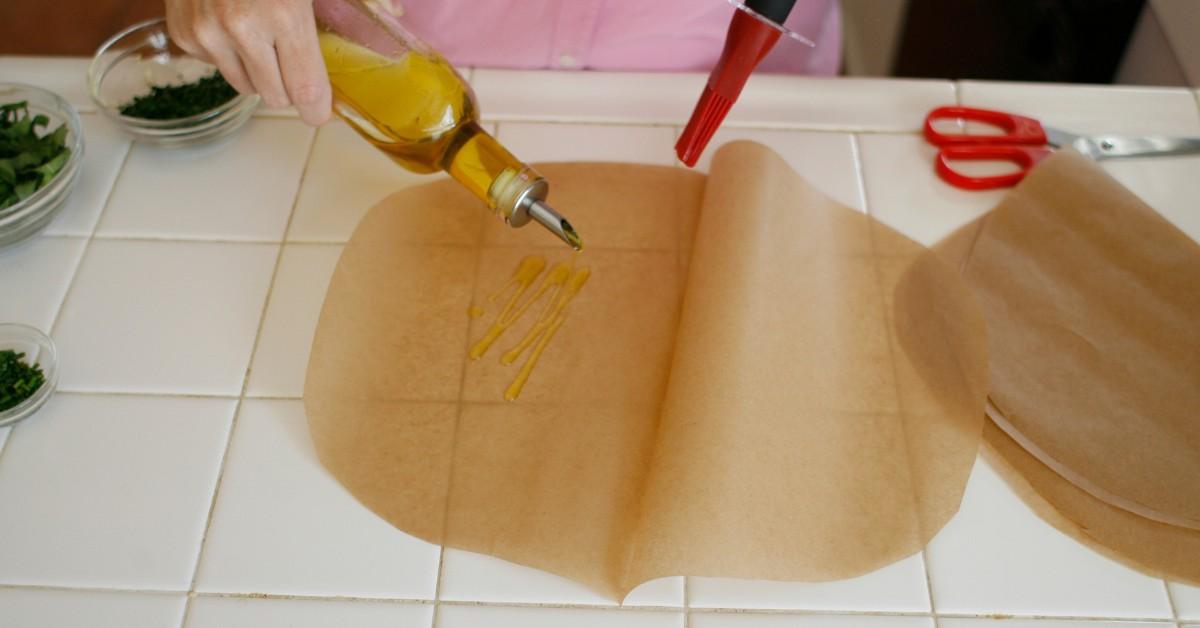Some Parchment Papers Use "Forever Chemicals" — These Options Are PFAS-Free
Forever chemicals are commonly used to create non-stick surfaces.
Published July 5 2024, 2:47 p.m. ET

Transparency Matters: If you click on any links on this page, Green Matters may earn a commission (at no additional cost to you). Each item is hand-selected by editors with the planet — and people – in mind. All prices listed are accurate as of the time of publishing. Learn more about our affiliate policy.
Now that everyone is becoming so much more aware of the prevalence (and potential danger) of PFAS — aka the forever chemicals per- and poly-fluoroalkyl substances — it's hard not to worry about all the different places they could be lurking in and around our homes.
That's especially true when we're working with common kitchen items, since PFAS are such a critical ingredient in non-stick items. But other than the pots and pans we use to cook, are there other places that these forever chemicals could be hiding? For instance, does parchment paper contain PFAS? Continue reading to find out.

Does parchment paper have PFAS?
In short, no, parchment paper doesn't always contain PFAS.
Whenever you're dealing with a non-stick surface, it may be easy to assume that you're also going to be encountering PFAS. But, that's not always the case, according to The Guardian.
The outlet notes that there are a lot of different ways to create the barrier sheets we use to help keep things like breads and cookies from sticking to the pan while they bake — these include PFAS, petroleum-based paraffin wax, chlorine bleach, and silicone, the latter of which is typically regarded as a more natural option.
Does Costco's Kirkland brand parchment paper have PFAS?
If you're a card-carrying Costco member, you're likely very familiar with the bulk retailer's Kirkland brand. The company makes store brand versions of a lot of popular products, including parchment paper. Wellness website Mamavation decided to test the Kirkland parchment paper for signs of PFAS, by sending it to a third-party lab where it was screened for fluorine, a key component that is present in the thousands of known PFAS.
Mamavation then shared the results of the lab testing, revealing that the paper came back with 12 parts per million (ppm) of fluorine. To put those results into perspective, BPI Industries & Compost Manufacturing Alliance says that anything with less than 100 ppm of fluorine is considered safe for composting.
They concluded that the most likely reason the Kirkland brand tested positive at all is because of accidental exposure to fluorine at some other point in the manufacturing process, seeming to further back up the fact that PFAS chemicals really are everywhere.
These brands make PFAS free parchment paper.
Don't worry, the news isn't all bleak. Mamavation also conducted similar testing on other brands, releasing the results in another article. And while the common choices like the Reynolds Parchment Baking Paper also tested positive for low levels of fluorine (it clocked in at 14 ppm), there were some other brands that came back showing a "non-detect" level of fluorine, which is anything below 9 or 10 ppm.
Those PFAS-free parchment papers, which use silicone as their non-stick ingredient, were:
If you're wondering whether or not it's worth it to make the switch from your go-to brand to something that has tested in the "non-detect" range, you may want to consider the fact that the EPA set a first-of-its-kind standard in April 2024 regarding what they consider an acceptable amount of PFAS in the nation's drinking supply.
The government agency is planning to embark on a multibillion-dollar project to reduce the amount of PFAS we're exposed to, highlighting just how seriously we should all be taking the presence of PFAS in our day-to-day lives.